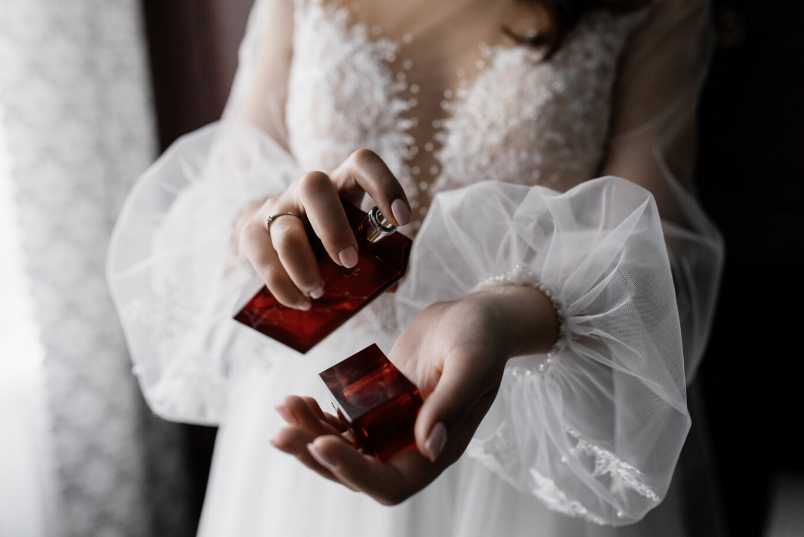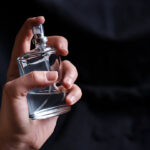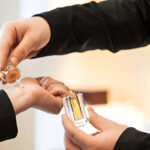To make a perfume you need to be more vigilant about the qualities of essential oils and alcohol so that the emerging perfume is up to the mark and satisfaction., Considering all other parameters to develop perfume including percentage by volume of alcohol, fragrance oil concentration, improving and adjusting the perfume notes, and adding fixatives for perseverance. To preserve the perfume after making it, look for a cool place or moderate temperature so that it evolves greatly.
Scents are designed with care to let you enter the imaginative world where you feel sensational and strengthened. Think of creating customized perfumes that are easily accessible and modify your personality.
The blog explains the process of creating perfume promising an ease for you!
Perfume Making in Your Fragrance Lab: From Basic to Proficient
Hello, mellow! You’re about to start the process of perfume making. Calculate your numbers, grab the tools, arrange ingredients, and take a deep breath to dive into the experimentation. Let’s make your customized divine perfume or cologne:
Eau de Perfume (EDP)
If you are considering 15-20% essence oil, your total volume must be 100 mL. This means you will get 15-20 mL of fragrance oil.
You are the scientist of your fragrance lab, so decide how strong your fragrance should be to turn people’s heads towards you. The first step was how much-strengthened fragrance you prefer in perfume, so wizard it up!
The second step is to fill the gaps to let your fragrance oil mix well with alcohol. You can say fuel your fragrance by adding alcohol, let’s calculate the concentration you need:
80-85% will be alcohol in 100 mL of volume, which means 80-85 mL of solvent. Your perfume may also need a small amount of water i-e 5-10 mL in the same volume, but that’s optional. If you want people to pull off their socks, don’t add water to get a stronger fragrance.
Eau de Cologne
Now, master cologne making as you want to be drawn to mild or soft fragrances. You’ll need only 2-5 mL of fragrance oil to get 100 mL of total Volume.
Grab the cylinder, and let your fragrance lab boom with the experiment.
- Add 95-98 mL of ethanol alcohol, the rest portion is of fragrance oil.
- Adding 5-10 mL of water will bring a more soft and kind chemistry to the fragrance.
I’ve Isolated the term perfume from colognes so that you can delve deep into the process of perfume-making easily.
Process of Making A Perfume
Follow the steps to make personalized perfume, and gear up your energies:
- Choose a theme and your personal preference among fragrances.
- Arrange raw materials, tools, and containers before starting the procedure.
- Make an essential oil to layer the ingredients in the top, middle, and base notes.
- Prepare the alcohol according to the concentration needed. It depends you are making Eau de perfume, perfume de toilette, or cologne.
- Mix and blend them appropriately, be careful to avoid spills. Mixing should be done until balanced notes are obtained.
- To improve the aroma of perfume, let it macerate for 2-4 weeks.
- Dilute if needed and fixative like glycerine to improve longevity.
- Filter the impurities and store them in a sleek bottle that enhances the aesthetic appeal of your wardrobe.
- Test, Modify, and Use
Things to Remember: Perfume Making Tips
- Take essential oils or magic elixirs from all the fragrance families like floral, woody, spicy, fruity, oriental, aquatic, etc. Use your nose as a mystery tool to identify the strength of each and depend on your likeness, mood, and seasonal choices.
- Don’t be kind to Alcohol! Combining the odorless but sharp solvent to get the scent to achieve its concentration and notes blending.
- Adjust texture and intensity by adding water. Tone down the fancy appeal to a little smoother or bring it dense notes.
- The real magic happens here! Seal the bottle of perfume after mixing until the ingredients are combined, and let it settle for 2 weeks so that everything mingles well to reveal the true version of the fragrance.
- Don’t lose the appearance of your perfume because of the left residue of herbs or flowers. Consider straining it, and transferring it into a glass spray bottle to enjoy your signature scent.
Epic Uses of Perfume-making Art
Enjoy the process of learning perfumery, the skill that brings many rewards for a lifetime:
- Making perfume is full of surprises as you’ll get many new kinds of scents by merging ingredients in varied quantities and combinations.
- Feel the uplifted mood, and enjoy it as a hobby. Blending fragrance oils into alcohol, and fixing them with glycerine requires time and attention that ultimately diverts your mind from worries.
- You can make a large perfume collection in your wardrobe for all occasions and seasons.
- Customized products are gaining popularity over the years, so consider gifting your creation to enlighten the moods of others.
- Embrace natural beauty saying goodbye to synthetic chemicals that can be harmful to your skin
Conclusions
How can we make perfumes more enduring and impressive? This is the question we often hear, then why not stand among those who know how to influence ourselves and improve our lifestyles? Wearing self-made scents with different concentrations of extracted oil to create perfumes enchant your existence in the memories of everyone, including you. Explore and experiment with the procedure, combining alcohols or vodkas with plant extracts, stabilizing the viscosity ensuring your mind, passions, and desires align with the creativity of essence for the ultimate striking experience.



